Rabbit Crew Kenya is your partner in food security. Food security means that you have sufficient, affordable, safe, nutritious food at all times for a healthy, active life. Food insecurity is a huge problem in Kenya and the world, resulting in issues such as hunger and malnutrition to the vulnerable populations.
We are pursuing this goal primarily in two ways: first, by promoting the consideration for rabbit meat in your diet, and second, we empower your production of the rabbits if you wish to produce for yourself, through foundational input supplies, and farm training to beginning farmers. We are directly involved in these two activities as well at our rabbit farm.
Beyond meat, rabbits provide valuable byproducts: their manure and urine, that are both rich in Nitrogen, Phosphorus, Potassium, and other nutrients, for your foliar and soil fertilizer for your farming. The ammonia scent in rabbit urine acts as a pest repellent, reducing reliance on commercial pesticides, and supporting safer, eco-friendly farming.
If raising rabbits isn’t for you, consider purchasing rabbit meat directly from local farmers—or from us (wink). Either way, you’re contributing to a healthy food system!
[A]. Rabbit Meat is a Little White (Un)Known Nutritional Powerhouse
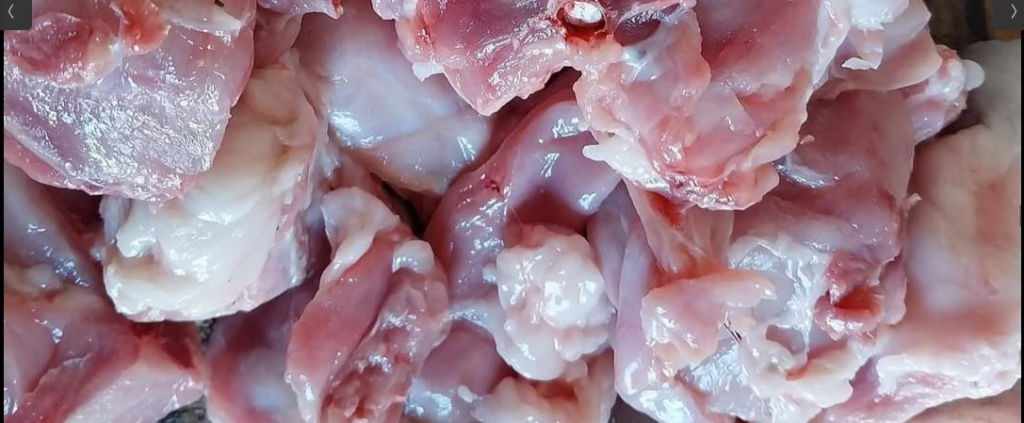
Selenium, a trace element in your body, is important for among other things, your heart health. Selenium will come from your diet. Popular sources are beef and chicken and yours truly, rabbit meat (wink). WHO (2021) reports Cardiovascular diseases (CVDs) as the leading cause of death worldwide, within the last few years, to date. Cancer and COVID-19 tag below CVDs. Rabbit is a complete protein, standing out in some isolated qualities, compared, and in tandem with the other meats consumed in mainstream Kenya.
1. High-Quality Protein
- Standout Fact: Rabbit meat contains 20–21% protein by weight (higher than chicken or beef) with all 9 essential amino acids.
- Why It Matters: Supports muscle growth, immune function, and child development—critical in combating malnutrition in Kenya. According to the 2022 Kenya Demographic and Health Survey (KDHS), 18% of children under five suffer from stunting, highlighting the urgent need for nutrient-dense solutions – like rabbit meat (KNBS, 2023).
2. Low Fat & Cholesterol
- Standout Fact: Only 8–10% fat (vs. 18% in beef) and lower cholesterol than most meats.
- Why It Matters: Reduces risks of obesity, heart disease, and diabetes—conditions rising in urban Kenya for people on high carbohydrates diets. If on a low carbohydrates diet, pair the lean fat rabbit meat with healthy fat sources such as avocados, or cook with healthy cooking oils such as coconut oil, ghee, butter, beef or rabbit tallow, or olive oil. Rabbit tallow can be obtained from old stewer rabbits that are let to live beyond 1 year of age on a diet that includes grain-based pellets. Forage fed rabbits will contain bare amounts of yellow fat that you can hardly render. Fryers are the young rabbits that can be slaughtered starting at 3 months of age that will also bear little fat, even if on a pellet-based diet. For all these rabbits, pellets are a supplement for 85% of their primary diet being hay in domesticated settings. Rural farmers with large tracts of greens are at an advantage as they have access to a wider variety of greens they can wilt then feed their rabbits. Their urban counterparts primarily rely on hay that is sold commercially.
3. Vitamin B12
- Standout Fact: 1.5–2μg per 100g (meets ~60–80% of daily needs).
- Why It Matters: Vital for nerve health and red blood cell production.
4. Iron (Heme Iron)
- Standout Fact: 1.5–2mg iron per 100g (similar to chicken, more absorbable than plant sources).
- Why It Matters: Combats iron-deficiency anemia, prevalent in approximately 1 in 4 Kenyan women during or after pregnancy (KNBS, 2023).
5. Phosphorus
- Standout Fact: 200–250mg per 100g (supports bone health alongside calcium).
- Why It Matters: Strengthens bones and teeth—key for growing children and aging populations.
6. Selenium
- Standout Fact: 15–20μg per 100g (25–30% of daily needs).
- Why It Matters: Boosts immunity and thyroid function, critical in regions with iodine deficiencies.
7. Potassium
- Standout Fact: 300–350mg per 100g (more than chicken, aids blood pressure regulation).
- Why It Matters: Helps offset high-sodium diets from processed foods in urban areas on irresponsible highly processed, high carbohydrates diets.
8. Niacin (Vitamin B3)
- Standout Fact: 6–8mg per 100g (40–50% of daily needs).
- Why It Matters: Supports energy metabolism and skin health.
Nutrient Comparison Table (Per 100g Raw Meat):
| Nutrient | Rabbit | Chicken (Breast) | Beef (Lean) | Pork (Loin) |
| Protein | 21g | 18g | 19g | 16g |
| Fat | 8g | 15g | 18g | 22g |
| Cholesterol | 57mg | 85mg | 73mg | 80mg |
| Iron | 1.8mg | 0.7mg | 2.1mg | 0.9mg |
| B12 | 1.6μg | 0.3μg | 2.5μg | 0.7μg |
[B]. Rabbit Meat is a Sustainable Food Source for Changing Climate
The world is becoming hungrier, and we are multiplying. The climate is changing too. We no longer have predictable farming seasons. Fodder for larger livestock is becoming leaner. Rabbits are small livestock, fitting for a greatly urbanizing Kenyan population.
We equate raising a hundred rabbits to raising one cow! Raising a thousand rabbits requires a near half of your ⅛ acre plot ground space in the tiered outdoor rabbit hutches that we make, with slaughtering facilities included. You can live besides your rabbits at the scale of your choice.
There are no distracting rabbit smells either as proper rabbit hutches self-clean and collect urine and droppings that you can put away daily.
A pair of a breeding rabbit can multiply to an effective population of 100 rabbits in 12 months when the original pair and their offspring breed in succession 4 times per year.
Their manure and urine support your kitchen garden too, in a neat and organic food chain, with you as the human, as the top predator of this ecosystem that you produced!

[C]. How To Cook Rabbit Meat
Don’t overthink it! Rabbit meat is versatile and easy to prepare—think of it like chicken or other lean white meats. Here’s a simple starting point:
- Seasoning Basics:
Combine ginger, garlic, onions, coriander, and salt for a classic flavor base. - Marinating Tip:
Marinate the meat for at least 2 hours (or overnight in the fridge) to lock in flavor and tenderness.- Avoid traditional “hanging” methods used for wild game (which can spoil quickly). Refrigeration keeps it fresh and safe.
- Cooking Methods:
Fry, grill, bake, stew, or mince—rabbit adapts to any style! For a unique twist, try sun-drying:- Sun-dried rabbit loses ~30% of its weight, intensifying its flavor. Rehydrate or cook directly in stews.
- Kefir milk whey is a great spice too that we have recently experimented on.
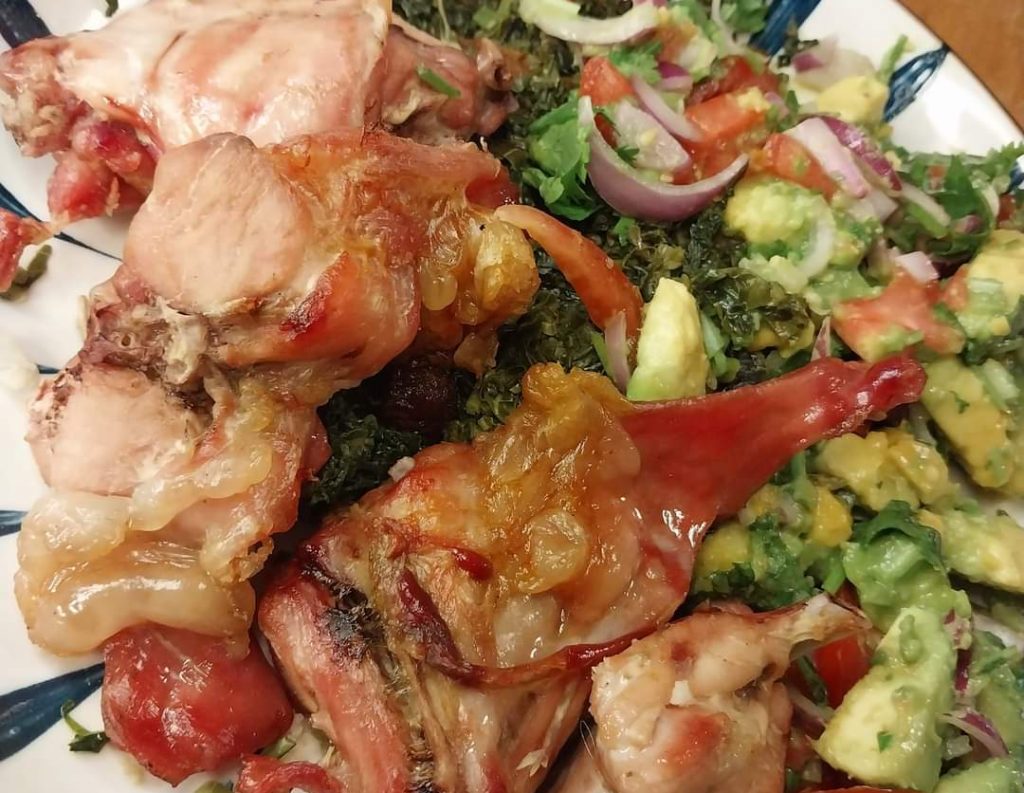
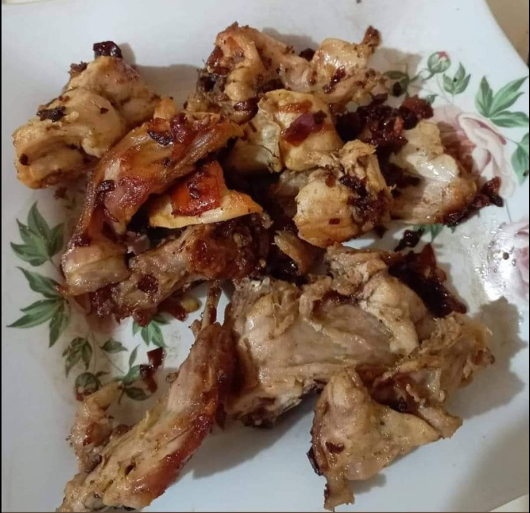
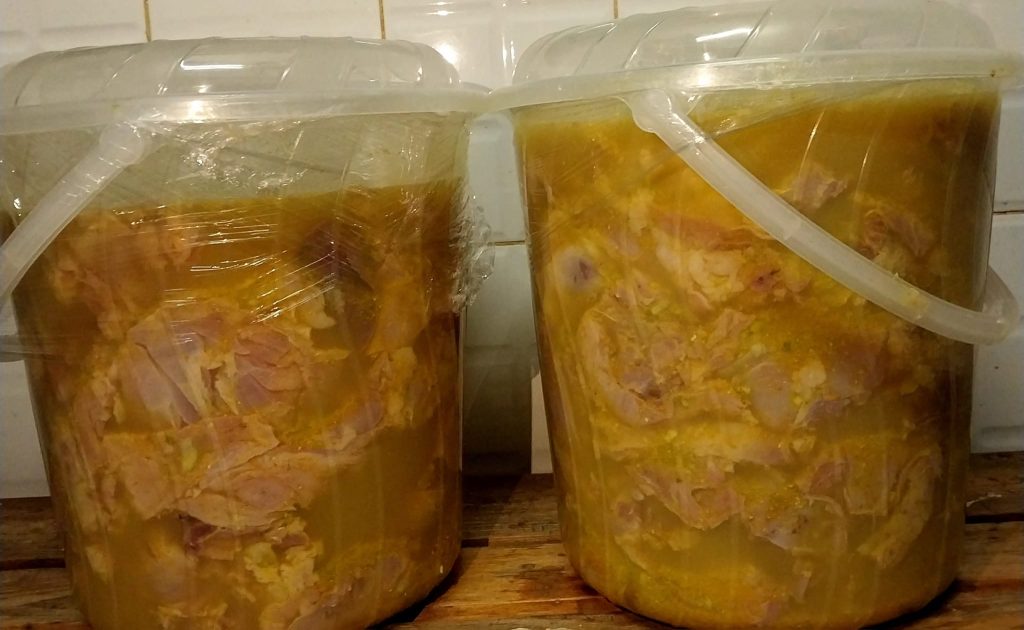
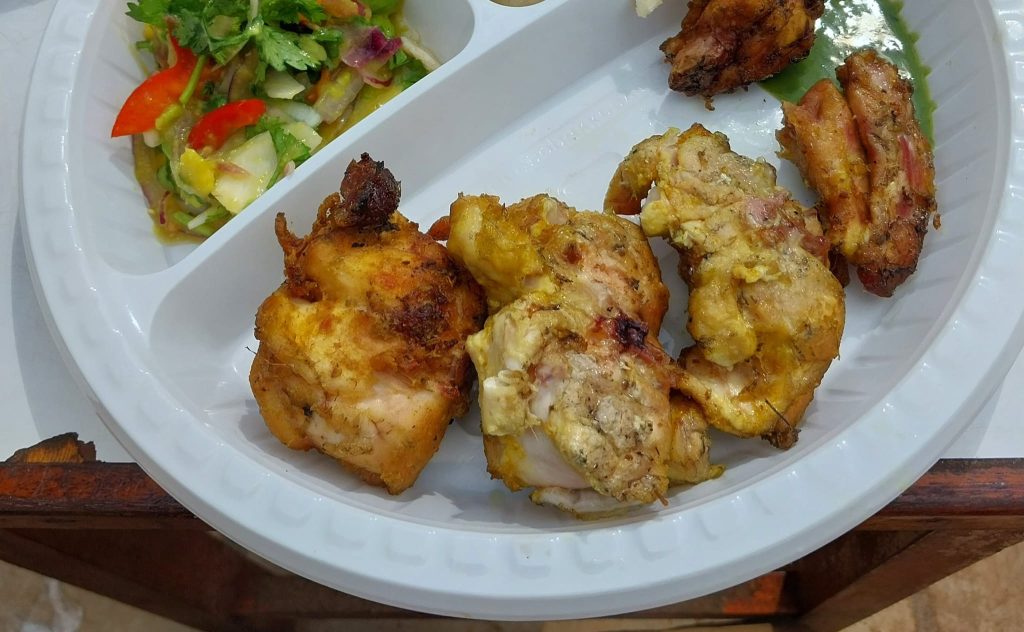
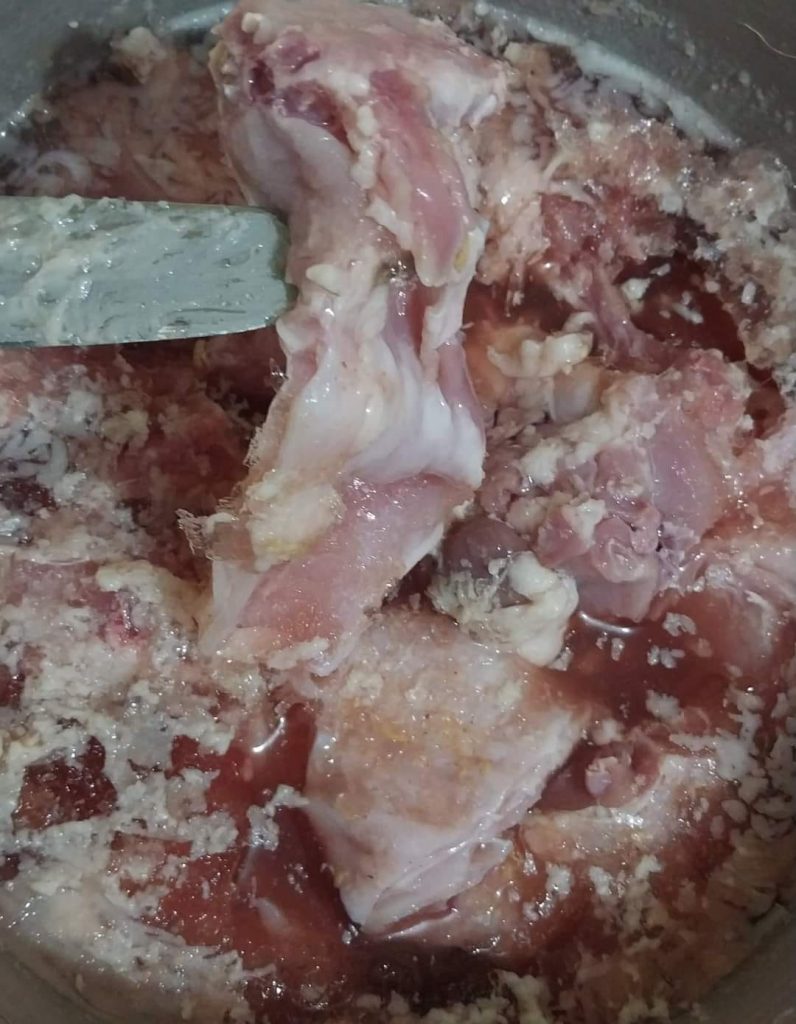
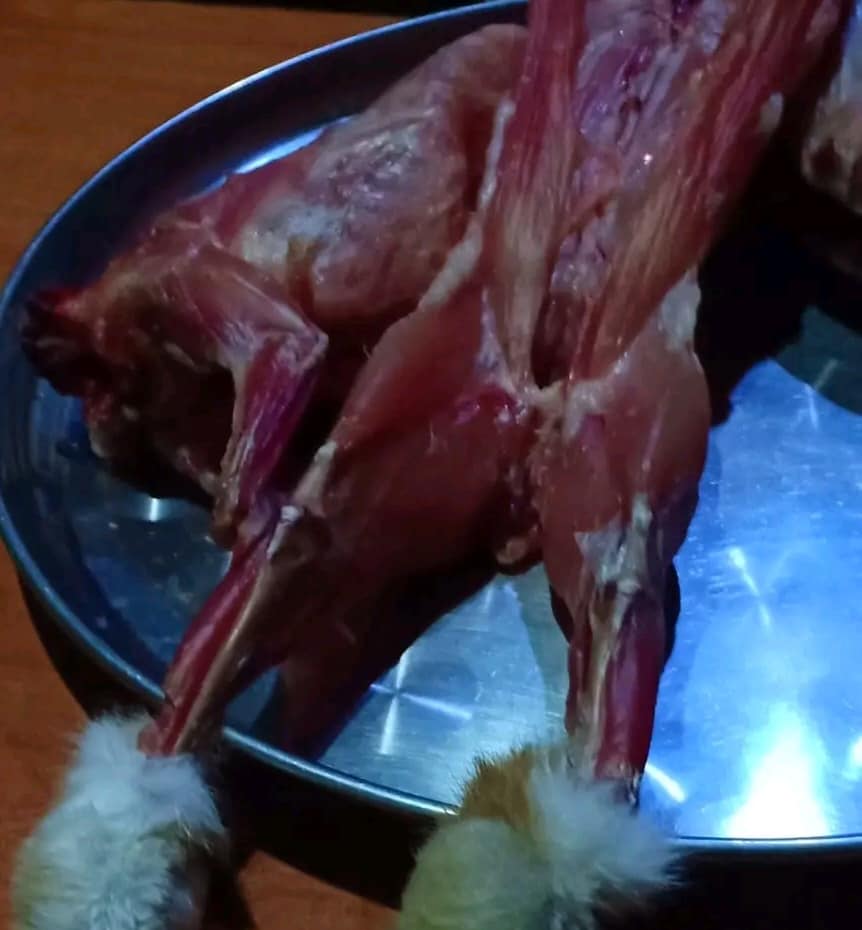
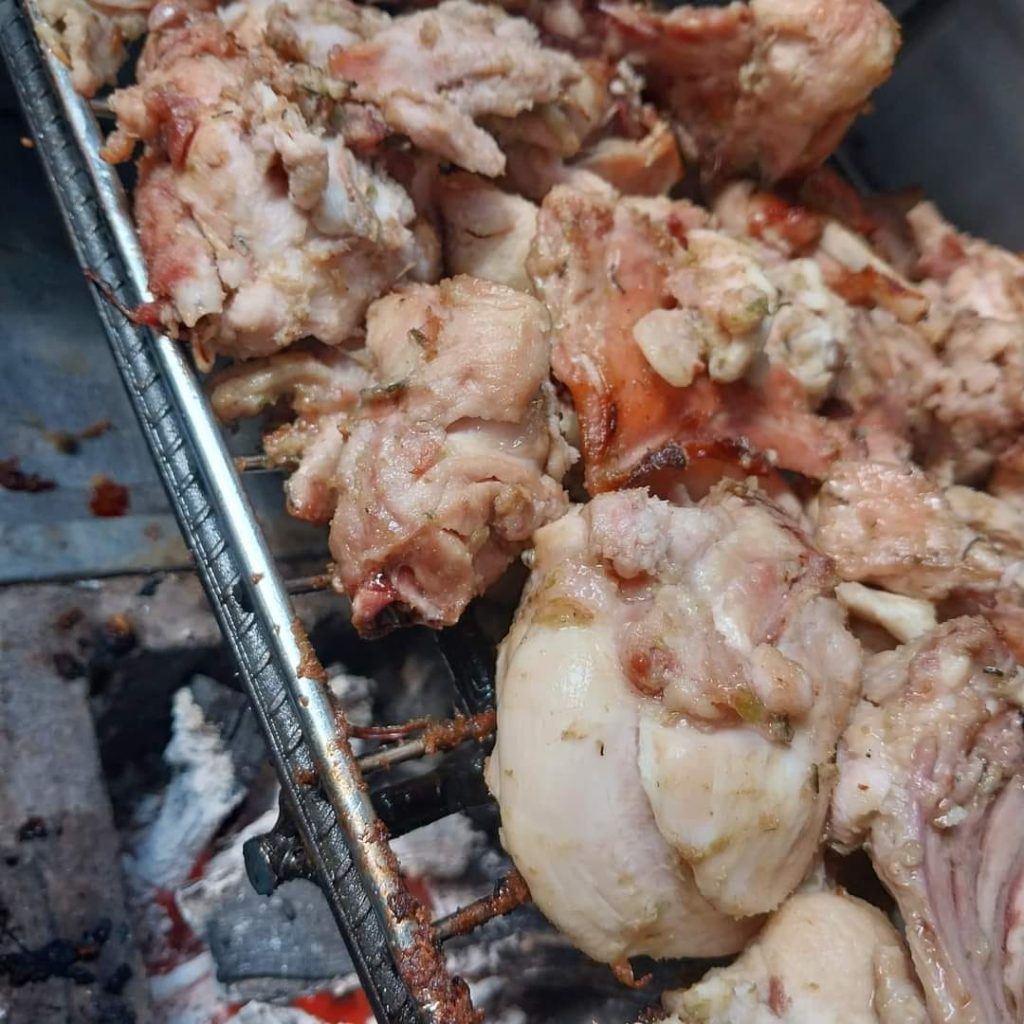
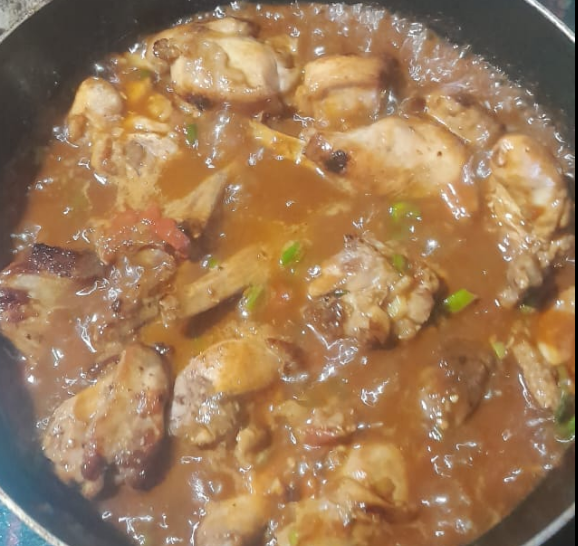
Rabbit meat is all-ages-of-human friendly.
Safety Note: Rare Allergic Reactions to Rabbit Meat
1 in 2500 people with pre-existing animal protein allergies may experience an itching allergic reaction with rabbit meat too, due to their pre-existing allergies when taking rabbit meat for the first time. Experiment under guidance from your healthcare provider if unsure, or start small and monitor your symptoms. Other than that, rabbit meat is a safe food.
Order some rabbit meat from us today.
What is your favourite rabbit recipe? Share with us in the comments below!
References
[1]. World Health Organization. (2021, June 11). Cardiovascular diseases (CVDs). Retrieved from https://www.who.int/news-room/fact-sheets/detail/cardiovascular-diseases-(cvds)
[2]. Kenya National Bureau of Statistics (KNBS), Ministry of Health (MOH), & ICF. (2023). Kenya Demographic and Health Survey 2022. KNBS, MOH, and ICF. Retrieved from https://dhsprogram.com/pubs/pdf/PR143/PR143.pdf
[3]. National Information Platform for Food Security and Nutrition (NIPFN) & Kenya National Bureau of Statistics (KNBS). (2021). Policy brief: Stunting of under 5 children in Kenya. https://nipfn.knbs.or.ke/download/nipfn-policy-brief_1121_a/
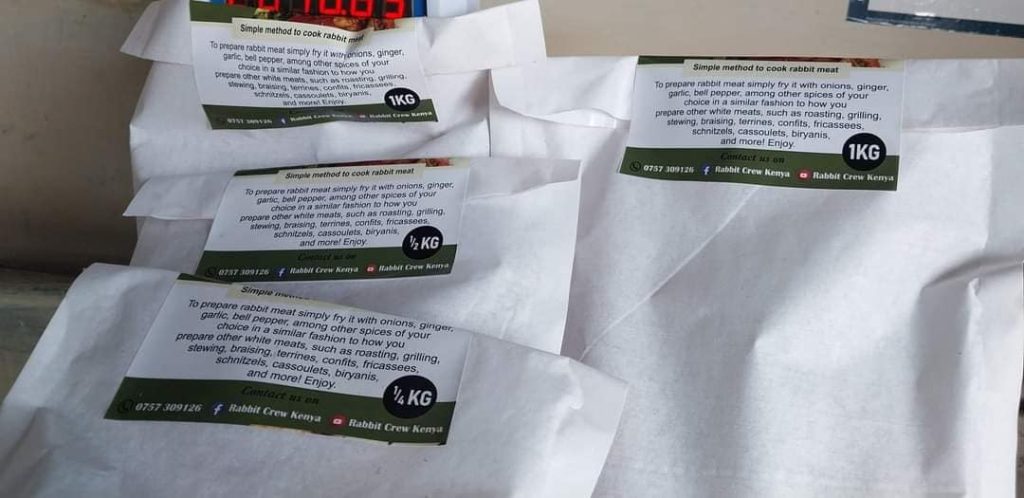
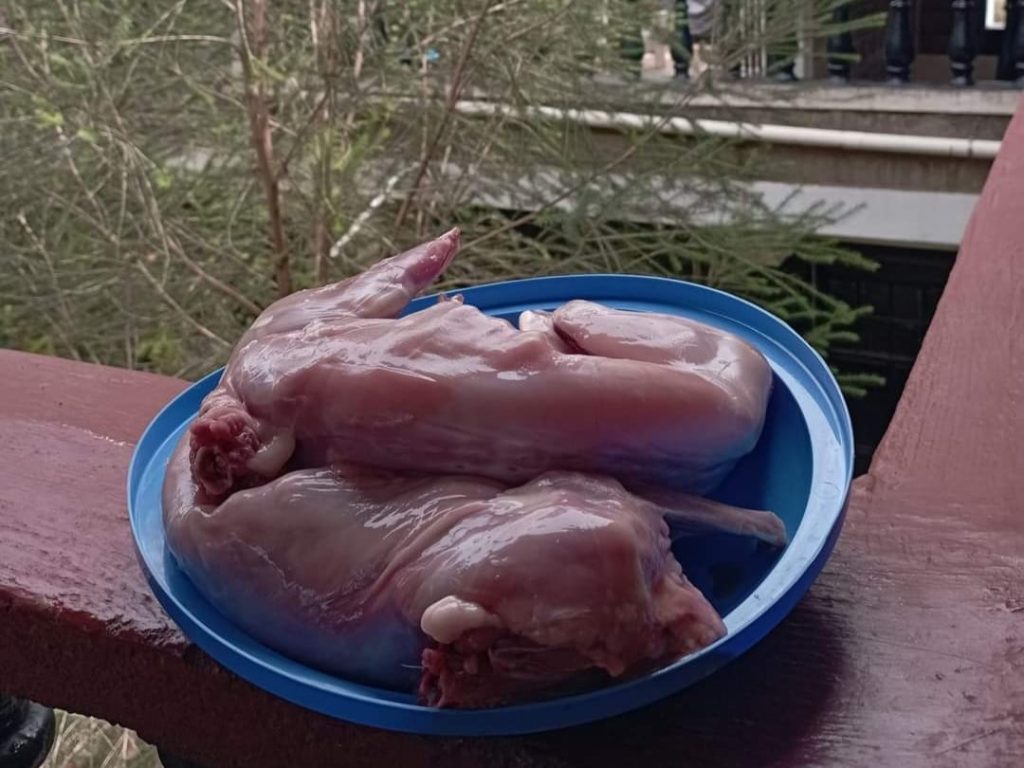
Am very interested in the rearing of rabbits. We had a chat on WhatsApp and am doing follow up. More training needed and advice
Hi Mercy! Great to hear that. We offer training at our farm in Kiserian. Get in touch we plan for the session.
I would like to know more about keeping Rabbits. Also if you have any training lessons about keeping Rabbits.
Hi Albert!
Yes we offer training. Reach us on +254757309126 to book a training session at our farm.